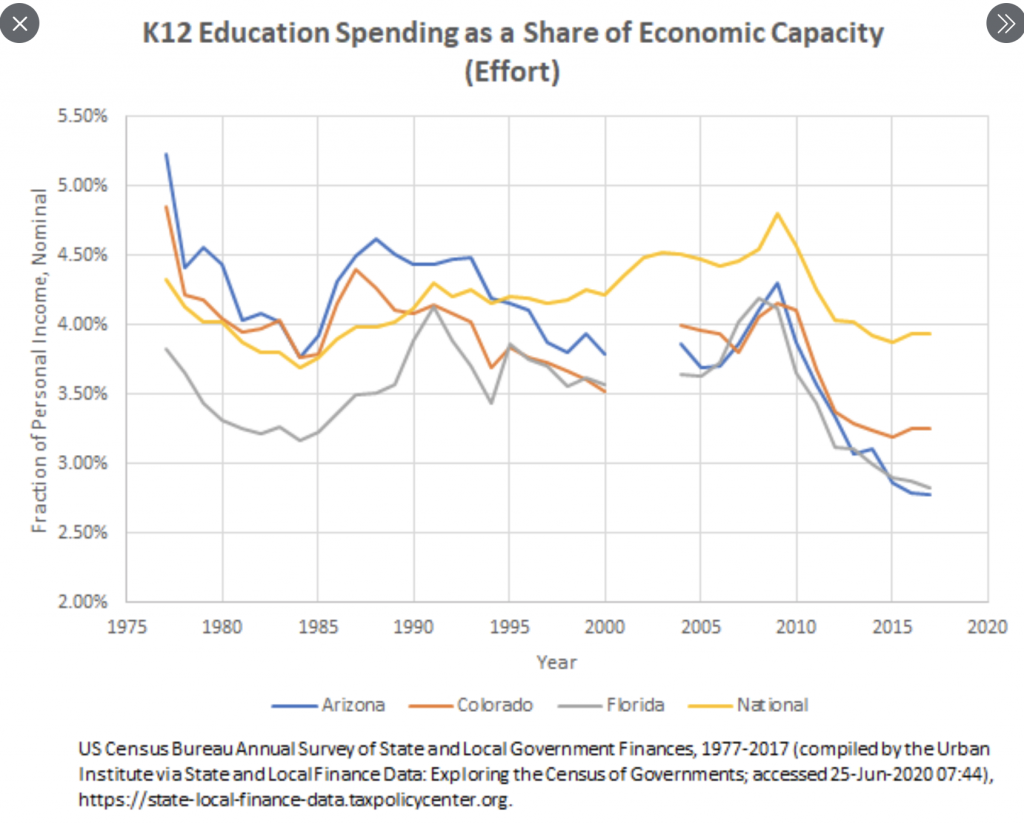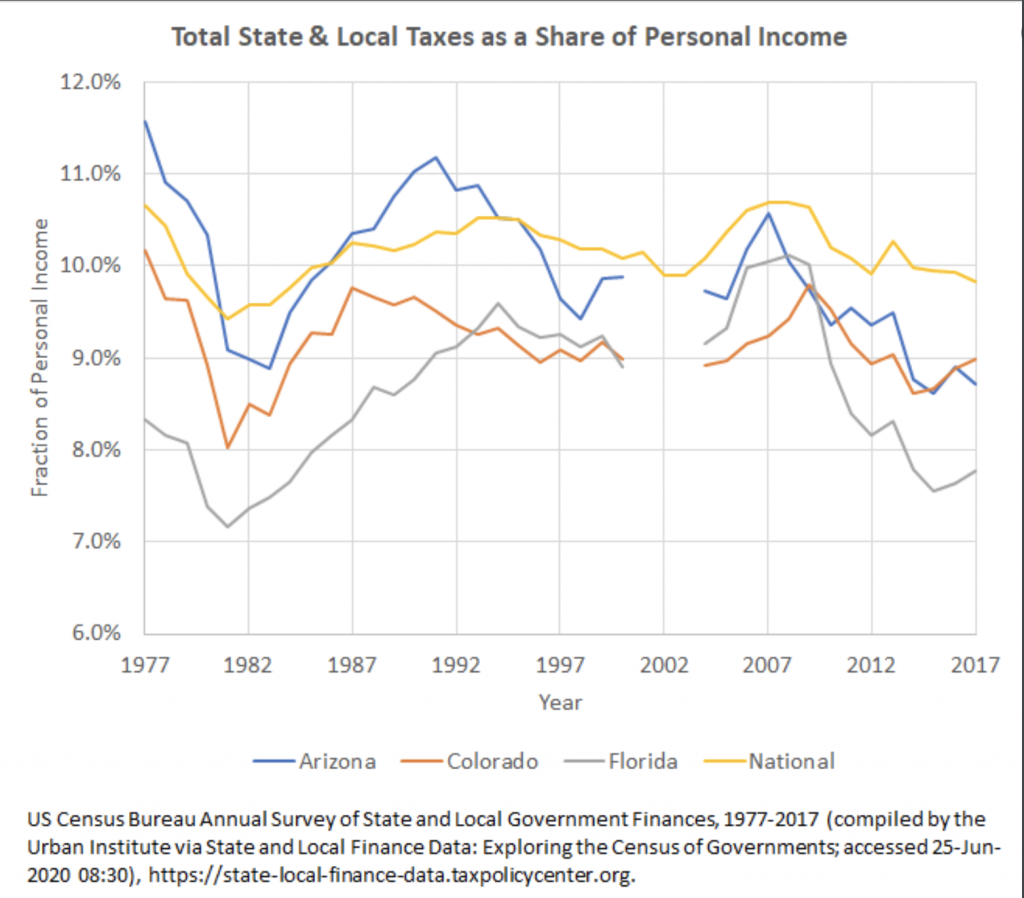Celebrations to Distract from Budget Realities – a Campaign Strategy
While we were preparing to publish this, Governor DeSantis signed HB7067 during a ceremony at Cristo Rey Salesian High School, a relatively new, apparently unaccredited, private Catholic school, in Tampa, which is part of the Christo Rey Network of high schools and participates in all of Florida’s voucher programs. HB7067 massively expands those voucher programs and, since they are now directly funded with public tax dollars, will cost some local school districts massive amounts of money moving forward. If you watch the ceremony (here), what you will see is another significant episode in the defunding and dismantling of public education…
More than a week ago, Governor DeSantis warned that he was readying his veto pen for the state budget, claiming “There’ll be a lot of red” and saying “It’s kind of the veto equivalent of the Red Wedding from ‘Game of Thrones.”
We are still waiting for the Governor to take action on the budget, but we did get answers regarding his teacher pay initiative (you can read our concerns, here, regarding the bill, how it sets salaries in stone and it’s possible impact on district funding flexibility during Covid).
Yesterday (6/25/2020), Governor DeSantis held a press conference in a corporate charter school (a part of the massive for-profit Academica corporation, who “coincidentally” employs Senate Education Chair Manny Diaz Jr.) celebrating the signing of HB641, which establishes the Teacher Salary Increase Allocation which mandates raising minimum teacher salary to $47,500. The new $500 million dollar allocation is to be split 80% for raises for teachers making less than $47,500/yr and 20% for those making more than $47,500 or those whose salary was originally less than $47,500 but increased less than 2%. As we wrote before, the $500 million allocation was created by a “budget exercise”: “in other words, most, if not all, of the $500 million allocated for teacher salaries was not created with new funding to districts but represents funds which were shifted around from other education budget categories.”
Richard Corcoran, Florida’s Commissioner of Education, declared this “the single largest teacher compensation package in the history of the state of Florida.” Governor DeSantis noted the increase base salary would take Florida from 26th in the nation to number 5 for “average minimum salary.” Senate Approriations Chair, Rob Bradley, celebrated “Promises made, promises kept.” Once again, 2020 was declared “The Year of the Teacher.”
Notice they did not declare 2020 “The Year of the Public Schools.” Let’s take a look at the pre-Covid, 2020-21 Florida Education budget and its impacts on public schools.
Florida’s public schools are funded primarily through the Florida Education Finance Program or FEFP. The current budget calls for an increase in FEFP funding (statewide) of $622 million. That seems like a lot until you look at the funding mandates:
- Teacher Salary Increase Allocation = $215.5 million (takes into account elimination of Best and Brightest Bonus funding of $284.5 million)
- Student Enrollment Growth (over 22,000 new students) = $339.9 million
- Mandated Florida Retirement System (FRS) rate increase = $204.7 million
- Mandated Mental Health assistance increase = $25 million
If you do the math, statewide this results in – $45 million in discretionary spending for 2.9 million students (FTE). That is $45 million LESS for rising insurance premiums, increased costs for necessary supplies, innovative programming or, even, cost of living salary adjustments for any employees not qualifying for the narrowly described Teacher Raises, like librarians, school nurses, or speech therapists, to name a few. Even without taking the impact of COVID into consideration, the 2020-21 budget was going to be challenging for school districts.
Still, critical education bills sit on the Governor’s desk awaiting his action.
One bill still sitting on the Governor’s desk is HB7067, which quadruples the expansion rate of the new Family Empowerment (FES) private school voucher, raises the income requirements and places the program on an automatic accelerator allowing virtually unlimited expansion in the future. (In case you missed it, you should read how the Florida Senate bent their own rules while passing HB7067.) The massive expansion of the Family Empowerment voucher program is concerning to local districts because the FES is funded directly from the FEFP. Last year, $103,529,750 was transferred from local districts to private school via the FES voucher. Some districts paid dearly (see page 7 here): Miami-Dade: $23 million, Orange and Broward: $11 million each, Duval: $7 million. This year, after HB7067 is signed, the FES program will be quadrupled in size… with all the money coming from your local district’s FEFP. (Update: This is the bill that DeSantis signed today in Tampa.)
And, as if it can’t get any worse, does anyone really believe the 2020-21 Education Budget will survive the Covid induced economic crisis intact? Virtually all of our sources in Tallahassee tell us that leadership is waiting to adjust the budget in response to Covid until after the November election. Apparently, budget cuts are bad for campaigning. After the election, the real budget slashing will begin.
Yes. Even in “The Year of the Teacher,” public school budgets will likely be slashed. This, of course, is not surprising to anyone following education funding in Florida over the last 20 years. Here is a graph posted by Rutgers University school finance expert, Bruce Baker, which demonstrates how Florida in particular has chosen to defund its public schools since 2008:

Baker’s graph shows K12 Education spending in 3 states as a fraction of total personal income from 1977 to 2017. FL is the gray line. In Florida, education spending, as a share of economic capacity, peaked just before the recession and then has steadily declined over last dozen years. Today Florida spends a third less than 1977 as a percentage of personal income while at the same time requires much more from its schools.
Baker also clarifies that Floridians (still gray) are not being taxed to death at the state and local level either:

Florida needs elected officials who are serious about education policy and appropriate spending, beyond merely political strategy. Perhaps we can choose better come November. Until then, we won’t be celebrating.
